What Are the Best Mulches for Asparagus? 7 Great Options
-
Jeff Weishaupt
- Last updated:
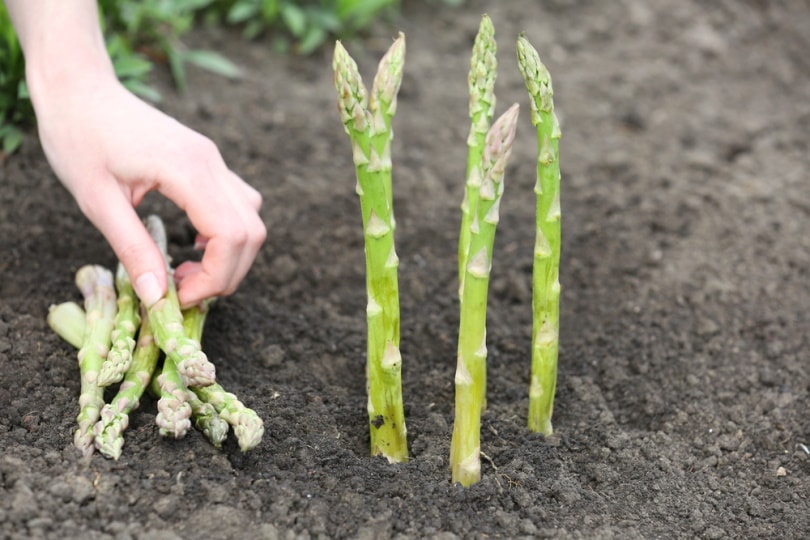
Asparagus is a perennial veggie that’s popular for its delicious spears. Whether you grow the vegetable organically in your garden or buy it from a supermarket, the spears taste the same either way. Luckily, asparagus is easy to grow and maintain. But you must choose the right mulches to ensure the plant’s healthy growth.
Asparagus plants enjoy both organic and inorganic mulches. Organic mulches warm the soil bed, suppress weeds, and boost the plant’s growth. Meanwhile, inorganic mulches also perform all the same functions but don’t provide nutrients to the soil.
Mulching is an essential part of gardening. To enhance your asparagus plant’s growth, check out seven great options in this post. We will also give you tips for mulching the asparagus correctly. Let’s get started!
 Why Should You Mulch Your Asparagus Plant?
Why Should You Mulch Your Asparagus Plant?
Regularly mulching your asparagus can improve its health and elongate its lifespan. The right type of mulch will also protect the plant from unexpected damage and unsuitable conditions. Here are some other reasons mulching your asparagus plant is essential:
- Temperature Balance: In hot weather conditions, mulch keeps your asparagus plant’s roots cool and moist. This way, they won’t quickly dry out and stay hydrated. Similarly, in cold conditions, mulch ensures your plants stay adequately moisturized and safe from frost damage.
- Weed Suppression: Weed growth is a common problem in most gardens. That’s because weed competes with your plants in taking up moisture and nutrients from the soil. Fortunately, quality mulch can help you suppress weed growth around your asparagus.
- The Perfect Soil Condition: Asparagus plants have special requirements for soil to thrive at optimal health. Since their roots prefer loose and aerated soil, you can choose the right mulch to achieve the perfect soil condition for your asparagus plants.
- Aesthetics: Mulching can also make your asparagus look fresh, polished, and irresistible. This could be especially beneficial for you if you’re growing asparagus for business purposes.
Now you know how vital mulching is for your asparagus plants. If you are still thinking about adding mulch to your garden, it’s the right time to do it. Your asparagus will look happier and will be grateful for it!
The 7 Best Mulches for Asparagus
Asparagus is versatile enough to be grown in multiple ways. However, you must choose the right type of mulch to achieve better results from your efforts. The best mulches for asparagus keep the roots moist and cool and suppress weeds.
You can choose organic mulches, including leaves, straw, and grass clippings, for your asparagus. These mulches break down over time, adding nutrients to the soil and keeping the roots cool and moist.
Inorganic mulches, such as paper, black plastic, and landscaping fabric, also work for asparagus. They help suppress weeds and keep the roots moist. However, they don’t add nutrients to the soil and must be removed as the growing season ends.
The 7 great options in mulches for asparagus include the following:
1. Compost
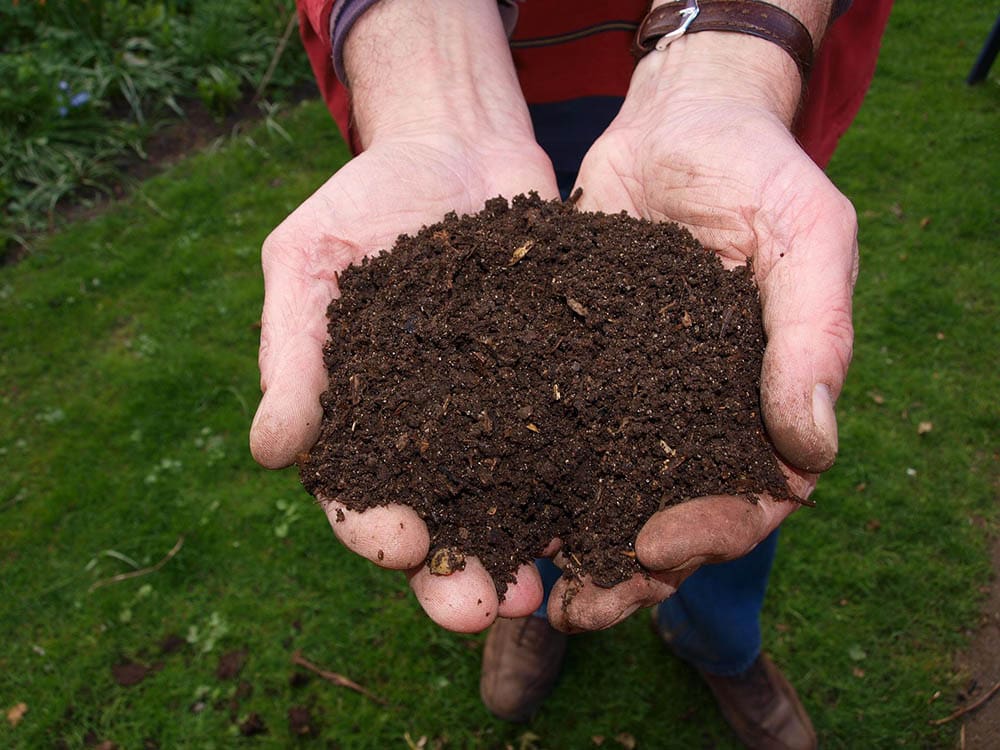
Compost is one of the safest and most beneficial mulch options for landscaping. It has a darker appearance, as it’s made of yard and organic kitchen waste. Compost breaks down gradually, providing nutrients to your plants for a long time.
It is a readily available and affordable mulch option for asparagus. Make sure to opt for a high-end compost brand to protect your plants from weed production and considerable damage for years. However, it’s recommended to reapply compost every year.
The R&M Organics Premium Organic Compost is a good compost mulch option in the market. It is 100% organic and has no foul odor like most mulches. You can also use it as an all-purpose fertilizer.
2. Wood Chips
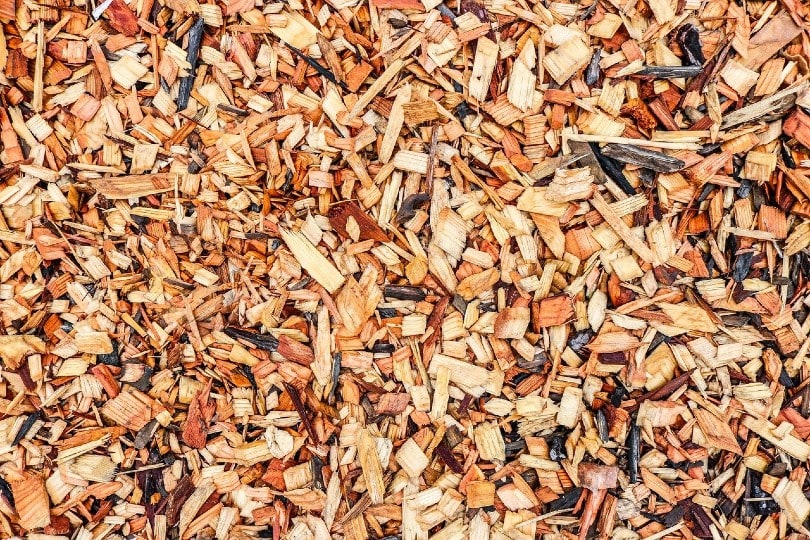
Wood chips are another less expensive organic mulch option that most gardeners love. They are made from many sources, such as pine and cedar trees. Like compost, wood chips also take longer to break and don’t need a replacement for a long time.
Wood chips are ideal for adding nutrition to the soil and enhancing the plant’s growth. The mulch also prevents splash, avoids root rots, and keeps the soil organized in its container.
Layering a good quantity of wood chips will help you reduce soil evaporation. So, you won’t have to water the plants all the time.
The Window Garden Organic Fiber Mulch is a good option in the market as it lasts for years. The product is in cinnamon color, making your garden look amazing. It is also 100% organic, meaning there are no added chemicals.
3. Straw (Hay)
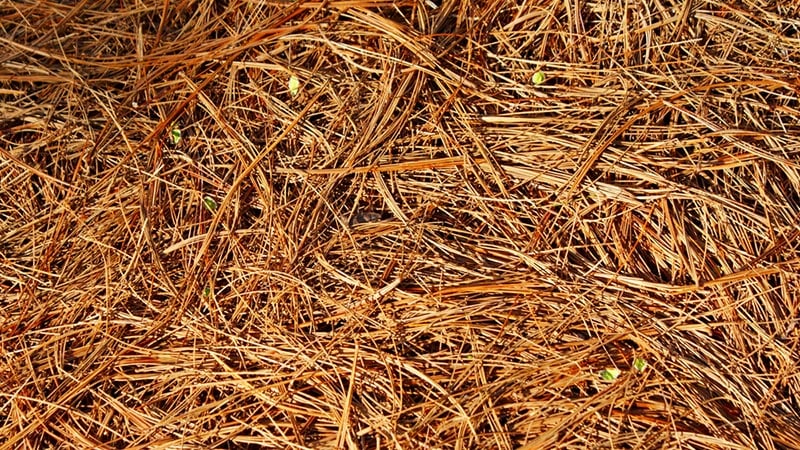
Straw is an easily decomposed mulch that feels light and clean. It is an excellent way to add nutrients to your garden, but you’d have to replace the mulch monthly or add a few layers more to ensure its effectiveness.
Many gardeners love straw mulch because it protects the asparagus seeds from wind and rain. It also absorbs and retains water and protects 99% of weeds from growing. The good thing is that straw mulch is very easy to apply.
We recommend the EZ-Straw Seeding Mulch for your asparagus plant as it is made of processed straw. The mulch is held together with an organic, biodegradable material that makes this mulch strong enough to fight extreme weather conditions. It is also kid and pet friendly.
4. Pine Needles
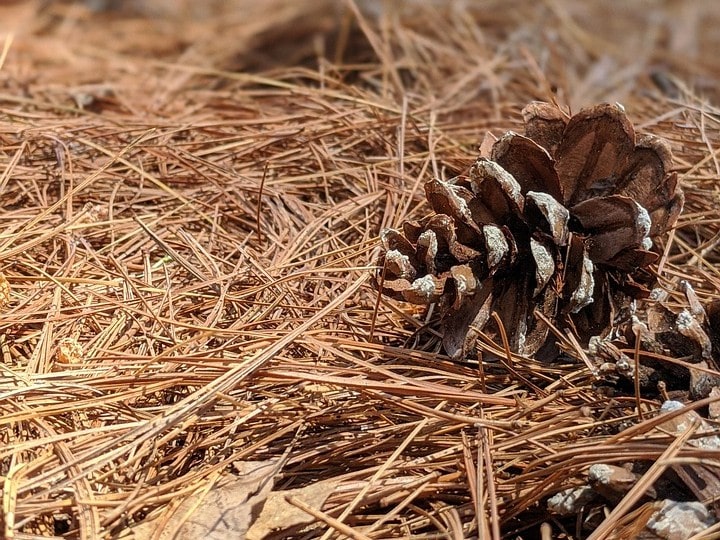
Pine needles effectively boost the asparagus plant’s acidity and add nutrients to the soil. Like other mulch options, pine needles break down slower and protect the plant from heavy wind and rain.
Like straw mulches, pine needles are also very easy to apply. They are also relatively lightweight, so you won’t have issues with their application.
As a product recommendation, we will vouch for the USA Pine Straw’s Premium Pine Needle Mulch. It is 100% natural and has a beautiful color to enhance your garden’s overall appearance. The product is ideal for covering around 300 square feet of space in your garden.
5. Black Plastic

Black plastic is an effective inorganic mulch option for your asparagus. It gives all the benefits of organic mulches, including weed prevention, growth boost, and soil enhancement. However, they break down relatively faster and are less durable.
Many gardeners observe that the black plastic breaks down under the scorching sun. In worst cases, it may retain heat in the asparagus plant and destroy its roots. Keep monitoring your plant’s health when using black plastic as the mulch.
For starters, you can opt for Grower’s Solution Black Plastic Mulch. It is an excellent mulch option in the market that controls weeds, blocks light, and reduces cultivation. It is also compatible with most garden irrigation systems.
6. Paper
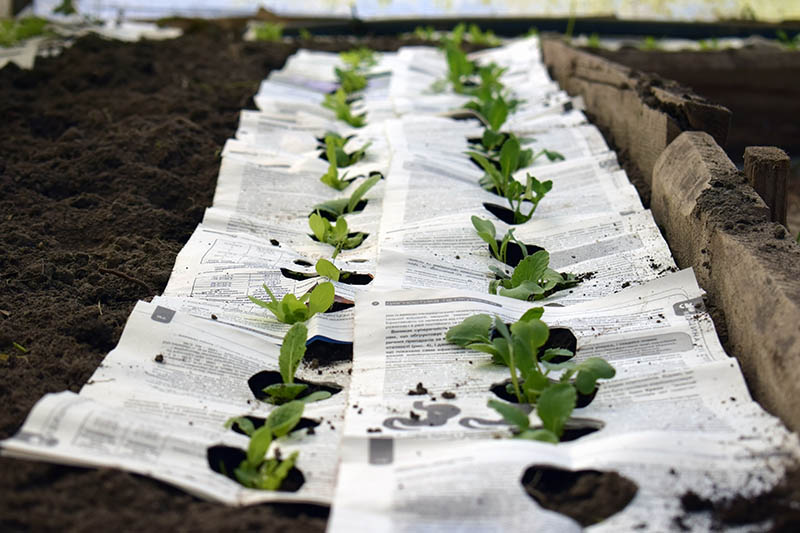
You can also use paper mulch for your asparagus plants. It allows sunlight and pollinators to penetrate through it and reach the plant. It also decomposes slowly and keeps your plant healthy for a long time. Typically, you’d need to replace them after an entire growing season.
Paper mulches block weed production, reduce soil erosion, and ensure optimal soil temperature. You can opt for the Weed Guard Paper Mulch Roll, which is made of cellulose fiber and no plastic. The material is 100% biodegradable, and you won’t have to worry about maintenance. It is also tillable!
7. Landscape Fabric
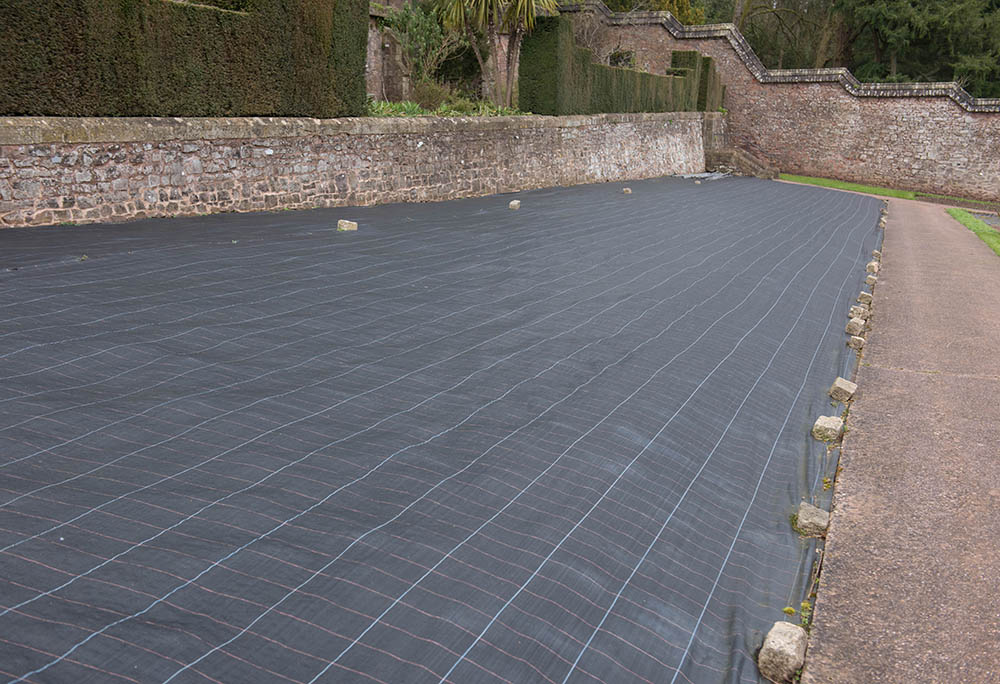
Landscaping fabric is typically used to suppress weed production when mulching. It also helps manage soil moisture, retain soil temperature, and improve the quality of plants.
Many homeowners also place the landscape fabric under their garden’s rocks or gravel. Doing so prevents stones from burying into the ground.
The Sunifier’s Weed Barrier Heavy Duty Landscape Fabric is a great option to maintain optimal soil conditions and temperature for your asparagus plants. It is also easy to install and remove.
How Often Should You Mulch Your Asparagus Plants?
Asparagus is generally planted during the early spring months. In favorable conditions, the asparagus keeps producing spears for many years. However, you must ensure minimal care, including yearly mulching.
Organic mulches usually break down slower than inorganic ones. The former is also more effective in maintaining optimal soil temperature and condition. But regardless of what type of mulch you choose for your asparagus, make sure to add it to your plant every year.
The best time for mulching plants is in the early spring when the spears appear. Always apply a thick mulch layer around your plant. Also, leave some inches near the stems to allow spears to grow through the mulch.
In the mid or late spring, you’d need to add more mulch to prevent weeds and keep the roots cool. If the weather remains hot in your area, water the plants frequently. As the growing season ends, remove the old mulch and add compost around the plants. This maintains the soil quality for the upcoming season.
What Is the Right Way to Apply Mulch to Asparagus?
Asparagus is an easily grown vegetable in home gardens. You can apply mulch to your plants in various ways. The most common method is doing it by hand or through a garden rake. Another way is creating a trench near the plants with a garden hoe and then putting the mulch in it.
It’s better to use mulch free of any additional chemicals and dyes. Nevertheless, make sure that it is of a high-end brand.
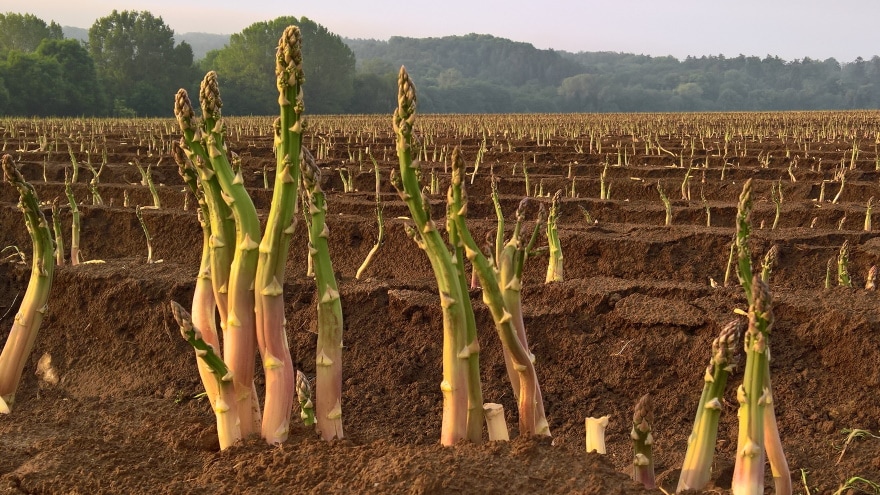
What to Consider When Mulching Asparagus
Although asparagus is a low-maintenance plant, it requires special care during mulch application. To achieve desirable results from your efforts, you must fulfill the plant’s requirements. Here are a few tips to remember when mulching your asparagus plant:
- Organic and inorganic mulches both work amazingly for asparagus plants. But since inorganic mulches don’t provide nutrients to the soil and plant, it’s recommended to opt for organic options, such as compost, straw, wood chips, etc.
- Don’t apply a too-thick or too-thin layer of mulch to the plant. Thus, 2–3 inches of mulch would be enough to add around the asparagus plant.
- Pull the mulch some inches back from the asparagus plants’ crowns.
- The best time to apply the mulch is early spring before the shoots emerge.
- Don’t forget to remove and reapply the mulch each year to maintain the 2–3 inch thickness.
Final Thoughts
Asparagus is a nutritious vegetable with minimal caring and growing requirements. With the right choice of mulch, you can maintain an optimal soil temperature and condition in your garden and suppress weed production.
Organic mulches, including straw, compost, wood chips, and pine needles, are the most suitable for asparagus. They also add up nutrients to the plant. You can also opt for inorganic mulches, such as paper, landscaping fabric, and black plastic. However, they don’t add nutrients to your plant’s soil.
Be sure to follow our tips for the right time, type, and quantity of mulches to reap maximum benefits for your asparagus. Happy gardening!
Featured Image Credit: Africa Studio, Shutterstock
Contents
 Why Should You Mulch Your Asparagus Plant?
Why Should You Mulch Your Asparagus Plant?